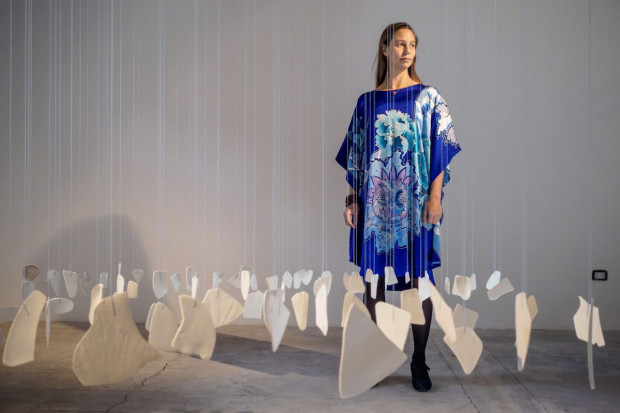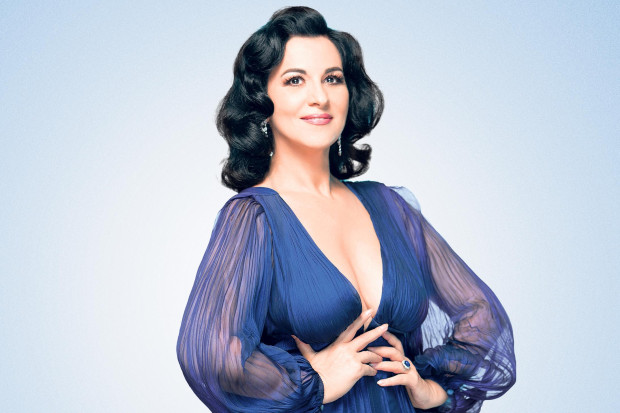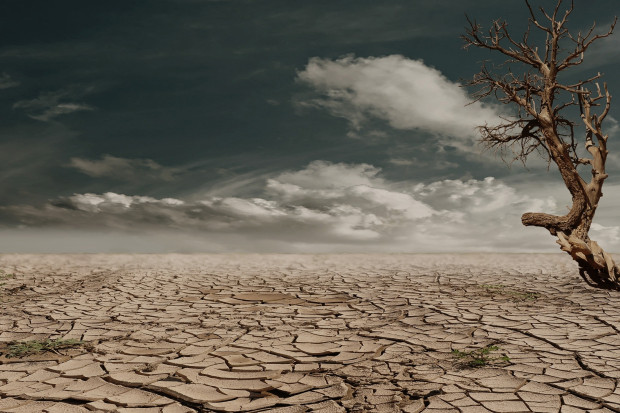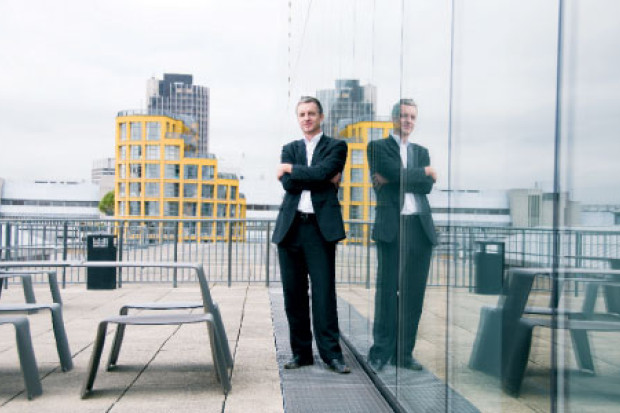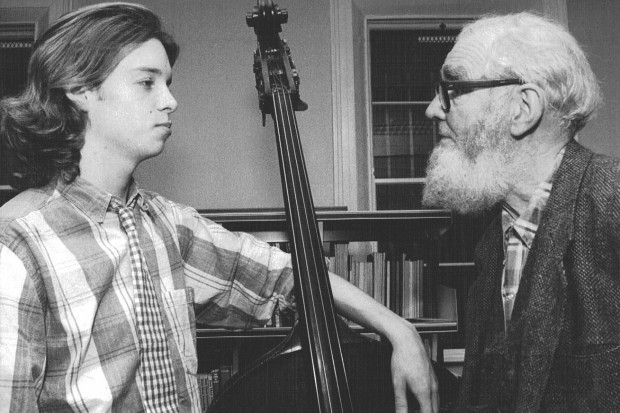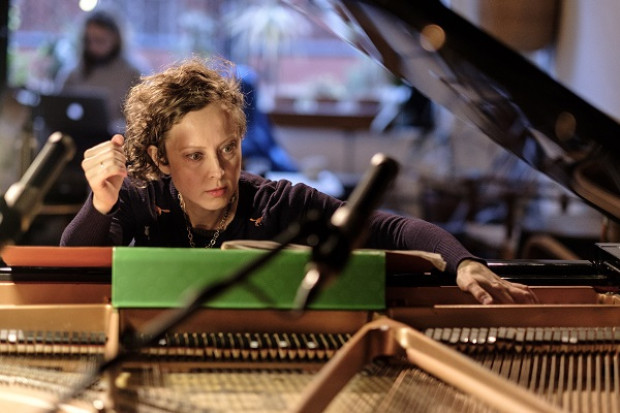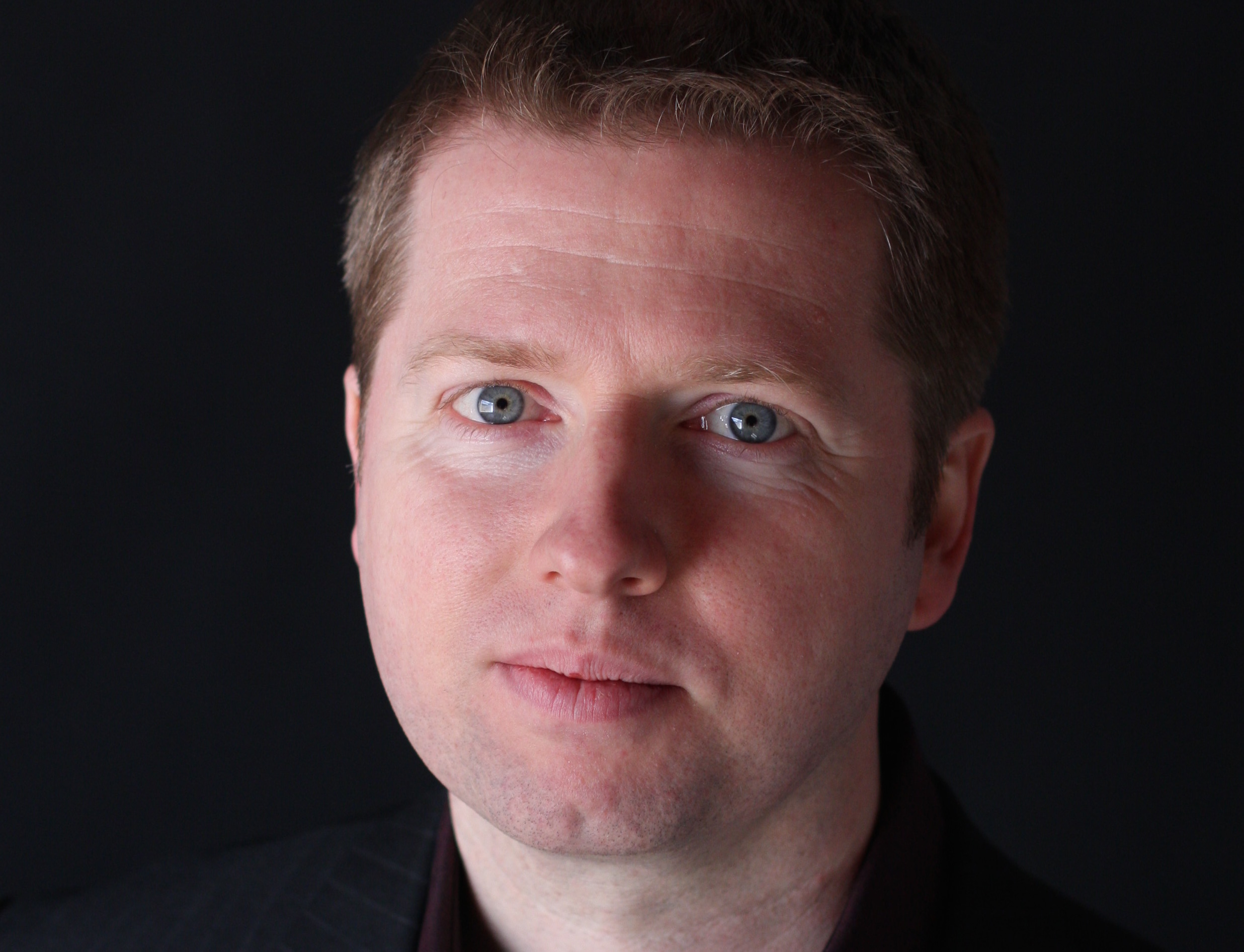
The Composer as Prophet?
There are possibly as many views on what a composer’s role in society is as there are composers, so I can only give you mine. When I began writing music I found that I had a certain facility for it and that I gained a degree of satisfaction from hearing my first, poorly conceived works performed by fellow students. As I continued to write, I gained the constitutional elements of a technique and found more confidence and strength in my composing. There eventually came a point when I felt that my apprenticeship had come to its end, that I had gained enough experience to move beyond the actual physicality of drawing notes on paper and to start to examine the why of composing.
At that time, around 1992, the obvious reason for me – someone whose faith was personally important – to write music, was as an act of worship; not music for worship, you must understand, but the actual engagement of my concentration with this ability, the sitting down and writing whatever piece I was working on became for me an expression of faith. This did not mean that every piece was religious in content or inspiration. In fact, even in the small number that were, I consciously broadened out their themes so that they were universal in their content, written to speak to as broad an audience as possible, no matter what their beliefs. The point is I felt I was honouring this thing I had by exploring it and trying to achieve its potential, and by doing so I was honouring God.
For a long time I thought that each piece, no matter what its inspiration, should have some positive aspect to it, so that even, or rather especially, in pieces where I am trying to explore the concept of death, there is a definite sense of hope given at the end, no matter how dark the musical journey has been. I think this still generally holds true, although there have been a couple of recent exceptions, where what I wanted to say in the music would only have been diluted by the grafting on of something foreign at the end.
I have written over fifty pieces in the last twelve years, and they fall into three fairly distinct groups. Firstly, there are the big, weighty works, which I so label not necessarily because of their size, but rather because of their content. These works tend to explore facets of life and death, and are among my most personal statements, inspired by subjects which relate to my personal experiences, hopes and fears. They include my organ concerto, Rich Harbour, first violin concerto, Messenger, and third string quartet, Towards the Far Country.
The second group is more concerned with being than saying, works that glory in colour and timbre, music to tickle the senses. These pieces are a necessary counterweight to the first group, as I feel that only once in a while do I have the desire and possibility to make a big personal statement. Besides, the real delight in music is that it is heard, and so to explore and combine sounds for their own sake is as good a reason for writing as any. These pieces include my recent saxophone and piano concertos, Who’s Afraid of Red, Yellow and Blue? and Limena.
The third group of pieces, I would bring together under the title of ‘functional’. When you work to commission most of the time, you cannot always have the complete freedom to write what you would like. Sometimes you are constrained by who you are writing for, and even by where the performances will take place. In such cases you still write the best piece you can, but you cannot perhaps attempt the big statement or have the freedom to revel only in the pure sounds. These works are few, but are still valuable, perhaps in a pedagogical way, and tend to be more about the craft of composing rather than the art.
It is only in the last six or seven years that I have come to call myself a composer, have given myself that job-title. And not without a certain hesitation, as well as perhaps a little pride. For many people write music, but it doesn’t make them ‘composers’, just as many people paint pictures but it doesn’t mean they are ‘painters’. This brings me to the ‘A’ word – Art. It is very difficult to describe what it is – it’s easier to say what it is not – but we all have a fairly good idea of whether something is or isn’t when we see or hear it.
The American painter Willem De Kooning once said ‘I paint, other people call it art’. What is important to me is not so much whether what I do is perceived as art, but rather that it is perceived as having some intrinsic value, some sense of usefulness to the surrounding society, and that is where the real battle for modern music has to be fought. For I believe that music does have value, power even, to give listeners the opportunity to take a journey, to hear some truths, to become aware of themselves more completely when a piece touches something inside them they had forgotten was there, or did not even realise was there. Music is so powerful it can even lie to you, and so for me it must be treated as more than just entertainment (although there is nothing intrinsically wrong with being entertained).
I believe that composers, like poets, can be society’s prophets, or seers – they can do more than just reflect what goes on around them, for we can all see that anyway; they can actually point to a distant horizon, give people a sense of possibility in life. My favourite definition of ‘Art’ is that it is someone’s perception of the world made visible. A composer’s task is to explore the details of life that people don’t necessarily have the time or energy to do themselves and then share the conclusions.
Of course, this sharing of ‘information’ can hardly be specific in the language of music, yet in a way it is super-specific because it is said at the emotional level, that layer of understanding that dispenses with the need for words. I had the honour to meet the Czech composer Petr Eben a number of years ago, and he told me how important music became to ordinary people during the most oppressive years of the Communist regime there – it became a focus for hope and resistance, and even when composers had to be extra-careful as to what they called their pieces (religious titles were banned) the listeners were never in doubt as to the content of the music they were hearing. During the recent bombing of Belgrade by NATO, citizens flocked to concerts of all kinds of music for solace, solidarity and hope.
I heard it said once that you can judge the state of a nation’s soul by its attitude towards the arts, and there is some truth in saying that this sense of value is often in inverse proportion to the economic prosperity of the country. However, that is far from being the whole story. I have had a lot of experience of working both in Britain and in Ireland, and to me there is a big difference between the way things are done, and also in the way things are perceived in both countries. Britain has undoubtedly become a more financially-oriented country since the 1980s, and consequently the people in positions of power are demanding more and more that every aspect of life becomes cost-effective, including the arts, with the result that serious music, for instance, has begun to be seen as a commodity, its value reckoned by the amount of money people will spend to listen to it, whether commercial radio will play it, and how far up the classical chart it can climb. Composers with something to say are more likely to become marginalised, and the money to commission new work becomes ever more scarce. Can you believe that a festival as prestigious as Cheltenham had only three thousand pounds in its commissioning budget for the year 2000 because of cuts to its budget? And this is a festival that actively promotes new music.
Ireland is a different case. It never had the same money to spend on arts as Britain did in the past, and yet it has a tremendous history of producing artists of world renown. Musically, Ireland is obviously well known for its pop and folk exports, but over the past eight or nine years there has been a definite effort to encourage and support composers, even if it has been under-funded. Now that the country is experiencing some economic strength I think that interesting times lie ahead. There seems to be some sort of political will to make arts more accessible to a wider proportion of the population, and at last there is actually some finance to back this up, although I am aware that there appear to be some problems in the organisation of this. The main question, however, is whether people think this is important or not.
This has historically been a religious society, and there has been a very rapid move towards becoming a secular one in recent years. Of course, religion and spirituality are not necessarily the same thing, and the move towards secularism with regard to government does not necessarily indicate a spiritual vacuum – it’s very possible that it can indicate just the opposite, but it is a vital distinction whether people consider listening to serious music to be a spiritual pursuit, something which is beneficial to the soul, or simply a source of entertainment. Sometimes the line between entertainment and spiritual food can become a little blurred, but the important thing is that the listener is open to the experience being a spiritual one.
So how is an audience created or developed in this society that will seek out serious music? One of the most positive developments in recent years is the setting up of many schemes whereby composers are invited to give talks and presentations to groups of interested individuals, in order to de-mystify (to a certain degree) and inform, as well as the many composer-in-education schemes that see composers going into the classroom and working with students of all ages, helping them create their own music. This is one of the most important advances for composers in society, the enabling of students at a young age to experience creative self-expression, something which many people are either denied, or deny themselves due to a variety of social circumstances and attitudes. If these young people can realise the value of participating in something creative, the hope is that they will also understand the value of experiencing the creativity of others in order to broaden and develop their own horizons and perspectives. They are the audience of the future.
In times long past, the poets and musicians were seen as the repositories of the community soul – all the history, the events, the memories, and even the recent news was entrusted to these people. Their experience of evaluating and propagating the past no doubt gave them certain attitudes and beliefs about the future. Their songs and poems would guide, admonish, reflect and entertain, but perhaps also look to the possibilities of the future where are our prophets today? I believe that part of the job of the composer, the poet and the artist is to be a prophet, a comforter, a healer and an enlightener. By prophet, I do not take the literal interpretation of someone who actually sees the future, but rather I think of someone who can point to the possibilities of what might come to us, especially with regard to the health of our soul, someone to warn us when we as individuals get so enamoured with material things that we forget to look after the more important part of us. Naturally, not everyone is willing to see these people in that role, or even anyone in that role, and there is a danger that we would rather let our souls atrophy than look for a balance in life. It is a fine line to walk between presenting oneself as a serious artist with something worth listening to and being seen as a pretentious know-it-all, and the safest way is to let the music do the talking – if it talks well and powerfully, then the audience will be more prepared to listen carefully and expectantly the next time.
First published in JMI: The Journal of Music in Ireland, Vol. 1 No.1(Nov–Dec 2000), pp. 28–30.
Published on 1 November 2000
Ian Wilson is a composer












